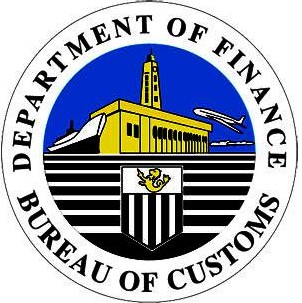Aquino signs CMTA into law – President Benigno Aquino III has signed into law the Customs Modernization and Tariff Act (CMTA), the Bureau of Customs said on Tuesday.
The law – Republic Act 10863 – updates the Tariff and Customs Code, last amended in 1978, and is supposed to modernize the bureau’s facilities, procedures, and overall operations.
“We, at the Bureau of Customs, are pleased to announce that Republic Act No. 10863, otherwise known as the Customs Modernization and Tariff Act (CMTA), has been approved and signed into law by His Excellency President Benigno Aquino III,” Customs Commissioner Alberto Lina said in an emailed statement.
RA 10863 was signed by President Aquino on Monday, according to the Presidential Legislative Liaison Office (PLLO), Communications Secretary Hermino Coloma, Jr. confirmed in a text message.
With the CMTA in place, several reforms will be implemented at the BOC that include full electronic processing of shipments, streamlining of export and import procedures, and simplified processes for seizure and disposition of illegal goods.
The measure will also raise tax exemptions on balikbayan boxes as it raises the value of de minimis – small items usually of minor or lacking importance – from P10 to P10,000.
Under RA 10863, overseas Filipino workers can send up to three P150,000-worth of tax and duty free balikbayan boxes in a year, given that goods are not in commercial quantities nor intended for barter, sale or for hire.
On top of the tax and duty free balikbayan boxes, Filipinos, who have stayed in a foreign country for at least 10 years and are returning to the Philippines, will also be granted tax exemption for the personal and household effects, not exceeding P350,000, they will be bringing with them when they return to the country.
Meanwhile, Filipinos who have lived overseas for at least five years will be entitled to tax and duty free personal and household effects amounting to P250,000, while those who have stayed abroad for less than five years can enjoy P150,000 tax-free ceiling.
The law also provides for an automatic indexation of the amounts every three years to account for inflation.
The act will also reduce corruption and technical smuggling, as well as improve revenues, as it establishes a “cashless, faceless, and paperless environment,” Lina noted.
“Efforts are already underway to attune current BOC systems to the new provisions in the CMTA focused on business process re-engineering, computer-based systems development, organizational development, capacity building, and external communication and education,” he said.
Stiff penalties
The Secretary of Finance shall adjust the de minimis value every three years after the effectivity of RA 10863.
The law likewise imposes stiffer penalties on the smuggling of goods. It slaps a minimum jail time of 31 days to six months or a fine of not less than P25,000 but not more than P75,000, or both, if the appraised value of the goods were unlawfully imported.
If the value of smuggled items exceeds P200 million, guilty parties shall be slapped with a fine of not less than P50 million, and shall suffer reclusion perpetua as the offense shall be deemed as a “heinous crime.”
RA 10863 also mandates the Bureau of Customs (BOC) to adopt non-intrusive examination of goods, and will be only allowed to conduct physical examination if directed by the Commissioner, the goods are subject to an alert order, and if there are controversies surrounding the goods declaration and the import process.
Fed up by reports of corruption, President-elect Rodrigo Duterte has said that he might as well abolish the agency, along with the Bureau of Internal Revenue and the Land Transportation Office.
“Kahit si President-elect Duterte ay gusto nang buwagin ang ahensiyang ito. Pero umaasa tayo na sa pamamagitan ng mahigpit na pagpapatupad ng batas na ito at sa tulong ng bagong administrasyong Duterte, magbabago at maisasaayos ang kalakaran ng Customs,” said Senator Juan Edgardo Angara, chairman of the Senate ways and means committee.
Source: GMA NEWS



















